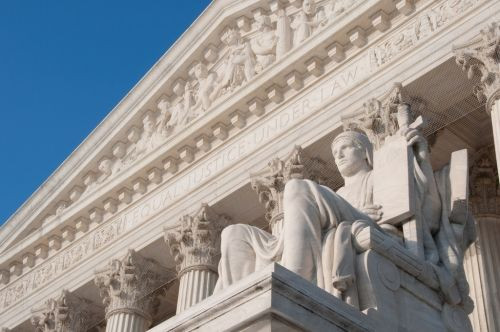Supreme Court Term Begins: Health Law Legality Question Looms

The legality of the 2010 health law which has ignited a power struggle between states and federal government will likely be a key case facing Supreme Court Justices when their new term begins Monday.
Experts believe the Supreme Court will take up the opportunity to hear the case sometime during the term and deliver a decision by June of 2012.
The court’s ruling may have some influence in an election year when the struggling economy and what to do about it will be a main issue.
The law, passed in March of last year aims at closing the health coverage gap in the U.S. by insuring nearly every one of the 30 million people, or 15 percent of the country, who don’t have health insurance by requiring that each person buy insurance starting in 2014.
The law includes subsidies for those who can’t afford it, raising the ire of Republicans in Congress who aim for a smaller federal government.
The law passed in an acrimonious way, along sharply partisan lines. It has faced the threat of legal challenges even before it was signed into law by President Obama in March of 2010.
The central question, according to both the states and federal government, surrounds that the so-called individual mandate at the law’s center.
A federal court in Atlanta has ruled that the core of the law violated the Constitution, although it kept the rest of the law in effect.
Last week, twenty-six states and National Federation of Independent Businesses asked the court to determine if the entire law should be blocked, not only the core requirement to purchase insurance.
On the same day, the Department of Health and Human Services, which is working to implement the law, filed to have the case heard.
“[D]espite the fact that the mandate is a ‘requirement’ that Congress itself deemed ‘essential’ to the Act’s new insurance regulations … the Eleventh Circuit held that the mandate is severable from the remainder of the Act,” the States and NFIB wrote in their petition.
“The question presented is whether the ACA (Affordable Care Act) must be invalidated in its entirety because it is non-severable from the individual mandate that exceeds Congress’ limited and enumerated powers under the Constitution.”
Other federal appeals courts have ruled the law was constitutional, setting up diverging opinions.
“The Department has consistently and successfully defended this law in several court of appeals, and only the Eleventh Circuit Court of Appeals has ruled it unconstitutional. We believe the question is appropriate for review by the Supreme Court,” the Department said.
“Throughout history, there have been similar challenges to other landmark legislation such as the Social Security Act, the Civil Rights Act, and the Voting Rights Act, and all of those challenges failed. We believe the challenges to Affordable Care Act — like the one in the Eleventh Circuit — will also ultimately fail and that the Supreme Court will uphold the law.”
The NFIB said in a statement last week that the question is a pressing one for businesses.
“While the survival of the new health-care law remains an open question, small businesses and individuals will continue to face uncertainty and trepidation, hesitant to hire or expand,” said Karen Harned, executive director of the NFIB’s Small Business Legal Center.
“In filing our petition today, we are attempting to impress upon the Court the urgency of this issue.”
Published by Medicaldaily.com



























